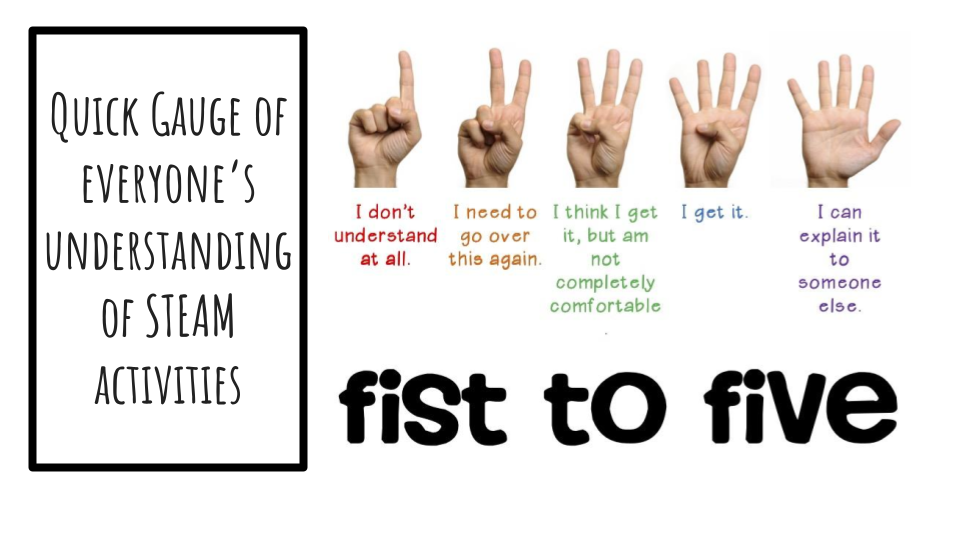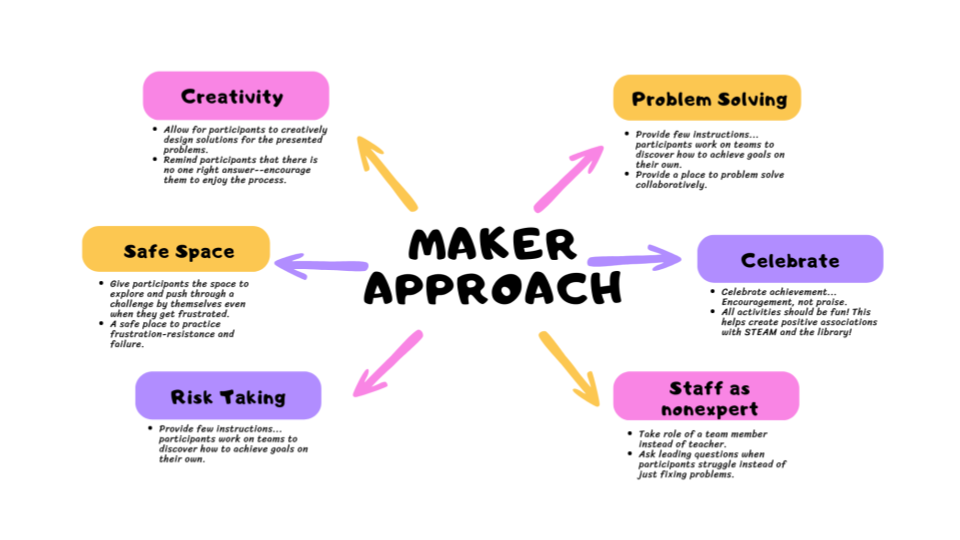
Before we begin, we'd like to take a moment and check how comfortable you are with the following:
- What STEAM Activities Are
- Running Your Own STEAM Activities
We use a 1-5 scale for this comfort check.
- I don't understand this at all.
- I need to go over this again.
- I think I get it, but I'm not completely comfortable.
- I get it.
- I can explain this to someone else.
(The in-person audience on 1 April 2023 was mostly a mix of two and three, meaning most of them have some familiarity, but additional help and support would be best for them.)

Doing STEAM programming is less about being someone who leads and lectures and the students follow along to create a specific kind of product. That can happen, if what you're doing is helping them develop an example they can mess around with and learn how to use an unfamiliar interface, but for the most part, once there's a good-enough understanding of how to mess with the things or to use the interface, the sage part steps aside and the maker mentality takes over.
Maker mentality grounds itself in iteration and resilience as key concepts. There's a goal, but there is no assumption of a single correct path to that goal. There are only more effective and less effective ways of getting there. Therefore, all possible avenues can be explored without worry or shame, and frustration and failure are expected as part of the iteration process. Staff present may or may not know any better methods toward achieving the goal, which places them in the position of learning alongside the participants, instead of being apart from them or trying to hint to them what the correct solution is.
Because there's no defined method, and because it's entirely possible the goal won't be achieved in the time allotted, all progress and learning should be celebrated in maker mentality. What might be learned is all the ways something doesn't work, but that should be seen as real scientific progress, because a lot of experiments turn out not to work for many times before one does work. Being willing to persist through failure should be both modeled and encouraged in the participants, and all progress should be praised as progress, even if it eventually turns out the participants have to go back to the drawing board for further improvements.